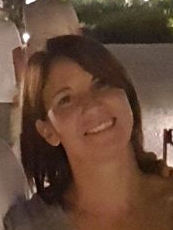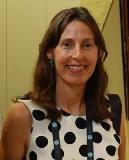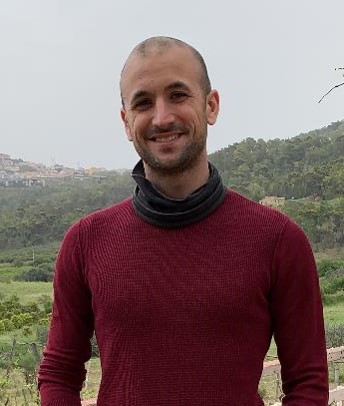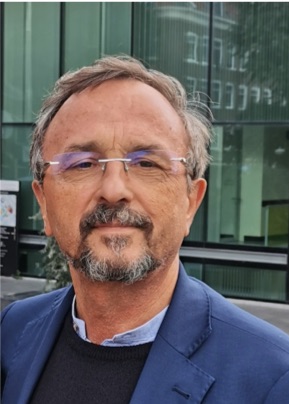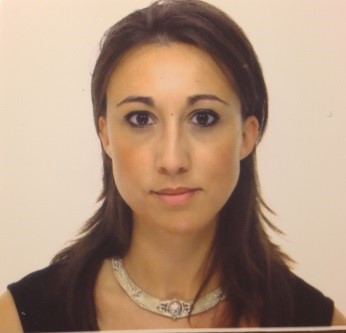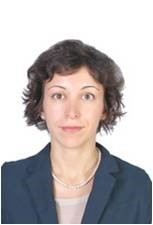Studying at the University of Verona
Here you can find information on the organisational aspects of the Programme, lecture timetables, learning activities and useful contact details for your time at the University, from enrolment to graduation.
Academic calendar
The academic calendar shows the deadlines and scheduled events that are relevant to students, teaching and technical-administrative staff of the University. Public holidays and University closures are also indicated. The academic year normally begins on 1 October each year and ends on 30 September of the following year.
Course calendar
The Academic Calendar sets out the degree programme lecture and exam timetables, as well as the relevant university closure dates..
| Period | From | To |
|---|---|---|
| I semestre | Oct 1, 2019 | Jan 31, 2020 |
| II semestre | Mar 2, 2020 | Jun 12, 2020 |
| Session | From | To |
|---|---|---|
| Sessione invernale d'esame | Feb 3, 2020 | Feb 28, 2020 |
| Sessione estiva d'esame | Jun 15, 2020 | Jul 31, 2020 |
| Sessione autunnale d'esame | Sep 1, 2020 | Sep 30, 2020 |
| Session | From | To |
|---|---|---|
| sessione estiva di laurea LM7 | Jul 13, 2020 | Jul 13, 2020 |
| Sessione autunnale di laurea LM7 | Oct 12, 2020 | Oct 12, 2020 |
| Sessione invernale di laurea LM7 | Mar 11, 2021 | Mar 11, 2021 |
| Period | From | To |
|---|---|---|
| Festa di Ognissanti | Nov 1, 2019 | Nov 1, 2019 |
| Festa dell'Immacolata | Dec 8, 2019 | Dec 8, 2019 |
| Vacanze di Natale | Dec 23, 2019 | Jan 6, 2020 |
| Vacanze di Pasqua | Apr 10, 2020 | Apr 14, 2020 |
| Festa della Liberazione | Apr 25, 2020 | Apr 25, 2020 |
| Festa del lavoro | May 1, 2020 | May 1, 2020 |
| Festa del Santo Patrono | May 21, 2020 | May 21, 2020 |
| Festa della Repubblica | Jun 2, 2020 | Jun 2, 2020 |
| Vacanze estive | Aug 10, 2020 | Aug 23, 2020 |
Exam calendar
Exam dates and rounds are managed by the relevant Science and Engineering Teaching and Student Services Unit.
To view all the exam sessions available, please use the Exam dashboard on ESSE3.
If you forgot your login details or have problems logging in, please contact the relevant IT HelpDesk, or check the login details recovery web page.
Should you have any doubts or questions, please check the Enrollment FAQs
Academic staff
 maurizio.boscaini@univr.it
maurizio.boscaini@univr.it
Study Plan
The Study Plan includes all modules, teaching and learning activities that each student will need to undertake during their time at the University.
Please select your Study Plan based on your enrollment year.
1° Year
| Modules | Credits | TAF | SSD |
|---|
2° Year activated in the A.Y. 2020/2021
| Modules | Credits | TAF | SSD |
|---|
| Modules | Credits | TAF | SSD |
|---|
| Modules | Credits | TAF | SSD |
|---|
| Modules | Credits | TAF | SSD |
|---|
Legend | Type of training activity (TTA)
TAF (Type of Educational Activity) All courses and activities are classified into different types of educational activities, indicated by a letter.
Food Economics and Intellectual Property (2019/2020)
Teaching code
4S008243
Credits
6
Language
Italian
Scientific Disciplinary Sector (SSD)
AGR/01 - AGRICULTURAL ECONOMICS AND RURAL APPRAISAL
The teaching is organized as follows:
Economia agroalimentare teoria
Proprietà intellettuale teoria
Economia agroalimentare esercitazioni
Learning outcomes
The course provides students with the fundamental concepts to understand the specificities of the agri-food markets and to foster the development of new products and the creation of start-ups. The expected learning outcomes are: NOTIONS: 1. Understanding the specific features and functioning of the Italian and international agro-food system; 2. Distinguish the different actors of the main agri-food and agro-industrial sectors; 3. Outline the behaviour of consumers and producers with regard to the quality of agri-food products; 4. Analyse the competitive strategies of agri-food companies also in relation to modern commercial distribution; 5. Understand the link between food certifications and information asymmetry in the agri-food markets. SKILLS: 6. Identify and evaluate opportunities for the creation of new agri-food products; 7. Develop a business plan for start-ups / spin offs 8. Define an adequate prototyping of an agri-food product 9. Implement the requirements to protect a new agri-food product or service using the multiple tools of intellectual property rights
Program
CONTENT
The course will cover the following topics:
1. Introduction: the agri-food system in a national and international perspective
2. Type of agro-food businesses:
3. Strategic planning of agri-food companies
4. Elements of agri-food marketing and consumer theory
5. Practical activity (business plan)
6. Intellectual property rights (trademarks and patents) and creation of start-ups / spin offs in the agri-food sector
DIDACTIC TOOLS
Classroom meetings include lectures (with slides), teacher-student discussions, group work and exercises. The aforementioned teaching methods aim to familiarize the student with the national and international agri-food system, its dynamics, specificity and the actors that compose it. The course also provides the student with a critical approach to foment a mindset of "doing innovation" in the agro-food sector and, at the same time, protecting products deriving from creative and intellectual activity.
During the course will be recommended ad hoc readings for further study, some of which will be mandatory for the written examination. In addition to the compulsory texts, the student can make use of the following in-depth texts
Bibliography
| Activity | Author | Title | Publishing house | Year | ISBN | Notes |
|---|---|---|---|---|---|---|
| Economia agroalimentare teoria | De Meo C. | Food marketing. Creare esperienze nel mondo dei foodies | Hoepli | 2015 | ||
| Economia agroalimentare teoria | Ciampi Stankova K., Cavicchi A. | Smart specialisation and the agri-food system: European perspective | ||||
| Proprietà intellettuale teoria | Sloman John; Garratt Dean | Microeconomia (Edizione 4) | Il Mulino | 2014 | 9788815138637 | |
| Proprietà intellettuale teoria | European Patent Organisation ( | Teaching Kit: Protect your ideas. | 2020 | Materiale scaricabile al seguente link: https://www.epo.org/learning-events/materials/kit/download.html |
Examination Methods
REQUIREMENT OF ACCESS TO THE EXAM
Before presenting to the exam, the student is required to regularly send the assigned tasks to the teacher and, in particular, the simulation of the business plan introduced and discussed during the practical phase. The respect of the deadlines in the delivery of the requested tasks and the quality of the latter contribute to the definition of the final vote
FEATURES OF THE EXAM
The objective of the exam consists in verifying the level of achievement of the previously indicated training objectives
The exam consists of a written test with some open questions and some closed questions taken from the study texts and the readers distributed at the beginning of the course. Open questions are always present and require the student to apply concepts, theories and models learned during the study of texts to a real case of training. The closed questions, instead, refer to the teaching material provided during the lectures. During the lessons, examples of written exams are presented
Type D and Type F activities
| years | Modules | TAF | Teacher |
|---|---|---|---|
| 1° 2° | Python programming language | D |
Maurizio Boscaini
(Coordinator)
|
Career prospects
Module/Programme news
News for students
There you will find information, resources and services useful during your time at the University (Student’s exam record, your study plan on ESSE3, Distance Learning courses, university email account, office forms, administrative procedures, etc.). You can log into MyUnivr with your GIA login details: only in this way will you be able to receive notification of all the notices from your teachers and your secretariat via email and soon also via the Univr app.
Graduation
Deadlines and administrative fulfilments
For deadlines, administrative fulfilments and notices on graduation sessions, please refer to the Graduation Sessions - Science and Engineering service.
Need to activate a thesis internship
For thesis-related internships, it is not always necessary to activate an internship through the Internship Office. For further information, please consult the dedicated document, which can be found in the 'Documents' section of the Internships and work orientation - Science e Engineering service.
Final examination regulations
List of theses and work experience proposals
| theses proposals | Research area |
|---|---|
| Dinamiche della metilazione del DNA e loro contributo durante il processo di maturazione della bacca di vite. | Various topics |
| Miglioramento del profilo nutrizionale e funzionale di sfarinati di cereali mediante fermentazione con batteri lattici | Various topics |
| Risposte trascrittomiche a sollecitazioni ambientali in vite | Various topics |
| Studio delle basi genomico-funzionali del processo di embriogenesi somatica in vite | Various topics |
Attendance
As stated in the Teaching Regulations for the A.Y. 2022/2023, attendance is not mandatory. However, professors may require students to attend lectures for a minimum of hours in order to be able to take the module exam, in which case the methods that will be used to check attendance will be explained at the beginning of the module.

 +39 045 802 7839
+39 045 802 7839

